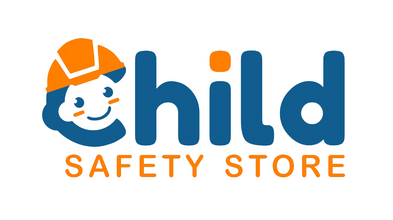
Choosing a Safe Bug Spray for Babies and Kids
For most of us, the snow and cold are finally gone! Now that the sunny weather has returned, it is time to head back outside. Unfortunately, the return of the warm weather also means the return of the bugs!
Between mosquitos, ticks and all other pests that bite, a lot of our readers ask about choosing a safe bug spray for babies and kids. In today’s Child Safety Store blog, let’s take a closer look at insect repellents.
Is There a Safe Bug Spray for Babies?
Let’s start with the littlest little ones. Is there a safe bug spray to use on babies? Not according to the Centers for Disease Control and Prevention (CDC). In fact, the CDC recommends that you don’t use insect repellents at all on babies younger than two months old. Bug spray can be too dangerous for their sensitive skin and lungs.
Fortunately, there are other solutions for kids under two months of age beyond sprays. To protect from bug bites, dress babies and toddlers in clothing that covers their exposed arms and legs. When your baby is in a stroller, consider covering the exposed area with see-through mosquito netting.
Beyond bug protection, we’ve also written a separate guide about keeping babies and kids safe from the heat of the summer sun.
Let’s Talk About DEET
DEET is a chemical used in many commercially available insect repellants. The amount found in a given spray varies between brands. That doesn’t mean that DEET is not without its share of controversy. Typically, the higher the concentration of DEET in a bug spray, the longer it will repel insects. That said, like any chemical, it can be hazardous in high doses. According to the American Academy of Pediatrics, parents should choose a bug spray that contains no more than 30 percent DEET. Fortunately, more than that isn’t necessary since the effectiveness of DEET tends to top off at around 30 percent anyway.
For parents who absolutely do not want to use chemicals on their children at all, there are also natural and homemade remedies that don’t contain any DEET. For example, here’s a helpful blog from WellnessMama with some natural homemade bug spray alternatives.
How to Use Bug Spray
Here are a few basic tips for safe bug spray use:
- Always read the provided instructions and precautions. Additionally, only reapply the spray when absolutely needed.
- Only use bug spray in a wide-open area. Breathing in the chemicals can be hazardous to a person’s health. Adults should help small children by applying bug spray for them. Older kids should be supervised during application.
- Don’t get the insect repellant in an open wound or cut. Additionally, take extra care to avoid the eyes and mouth.
- Don’t apply the spray directly to your, or your child’s, face. Instead, spray it into your hand and rub it onto the face.
- When finished for the day, be sure to thoroughly wash with soap and water to remove any remaining bug spray.
In Case of a Bad Reaction to Bug Spray
No matter how careful parents are, it is always possible for a child to have an adverse or allergic reaction to a particular spray or chemical. This can often take the form of a rash or irritated skin. If you suspect that this is happening to you or a child, immediately stop using the product and wash the affected area with soap and water. Following this, call the Poison Control Center at 1-800-222-1222.
